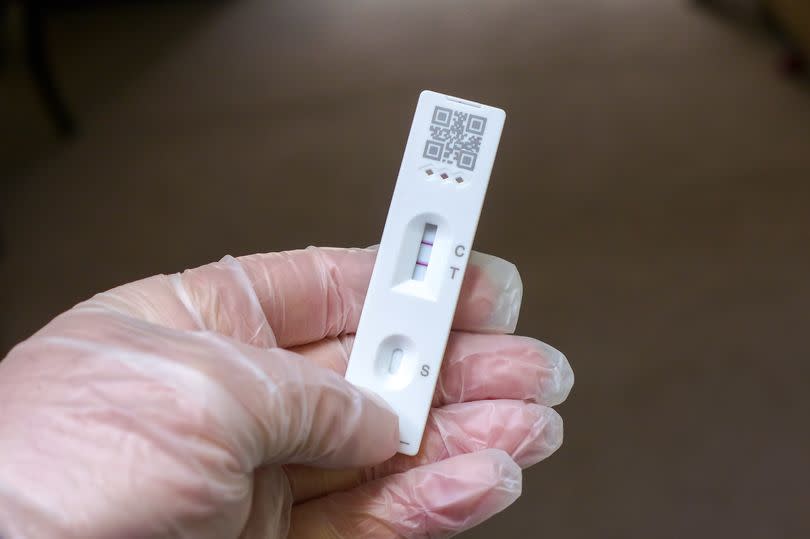Symptoms of FLiRT and LB.1 new Covid strains spreading in UK

Many people know of friends or family members who have recently experienced severe symptoms resembling a cold. If you're dealing with a persistent cough or sore throat that won't go away, it's possible that you've caught one of the new Covid strains.
Although it might be a common cold or flu, there is concern about a resurgence of Covid due to new variants called FLiRT and LB.1. These variants have started to spread across the UK this summer, leading to sickness in many individuals.
Because of this, questions that have come up in recent times are: what are the implications, how worried should we be, and what symptoms should we expect if infected? Here is what you need to know.
What are the new Covid variants and how are they spreading?
Summertime offers numerous chances to socialise and congregate with large groups of people at crowded venues like festivals, which create ideal conditions for the transmission of viruses. "Increased travel and big events such as festivals often result in crowded settings where the virus can spread more easily, and there is no longer any legal restrictions like wearing masks, social distancing," says Dr Mariyam Malik, an NHS and private GP at Pall Mall Medical.
Some health experts have also suggested that two new Covid variants, FLiRT and LB. 1, might be able evade immunity, which is why people who have been vaccinated are still getting ill. Malik added: "The FLiRT variant has specific changes in its spike protein that might make it spread more easily and dodge immunity from past infections or vaccines. Similarly, the LB.1 variant has mutations that help it spread and possibly weaken the protection we get from previous immunity, making these variants different from earlier versions of the virus."
What are the symptoms of the new Covid FLiRT and LB.1 variants?

The GP explains that new variants arise naturally over time, and the prevalence of infections provides more chances for the virus to mutate. Additionally, our immune responses from past infections or vaccinations may prompt the virus to evolve.
The expert adds that the "symptoms of the FLiRT and LB.1 variants are generally like those of earlier Covid-19 strains." Common symptoms include:
Fever
cough
fatigue
loss of taste or smell
sore throat
muscle or body aches
shortness of breath
headache
runny nose
He further explained: "People infected with the FLiRT and LB.1 variants do typically test positive on standard PCR tests," he added. "Rapid antigen tests also known as lateral flow tests can also detect these variants, though their sensitivity might vary."
Doctors usually recommend self-isolation and over-the-counter treatments if you think you might have Covid. Malik advises that the best approach is to self-isolate, rest, and maintain proper hydration.
He recommends: "Use over-the-counter medications for symptom relief, such as paracetamol and ibuprofen, and monitor your symptoms closely, seeking medical help if they worsen."
"To prevent the spread of Covid-19, it is crucial to stay up to date with vaccinations and boosters," he further advises. "Regular hand-washing helps prevent the spread of the virus. Regular testing and isolating if you develop any symptoms or test positive can also help control the spread of the virus."
When should I see my GP?
"For mild symptoms, rest and home treatment are usually sufficient, and there is generally no need to visit your GP," Malik explains. "However, it is essential to seek medical attention if experiencing severe symptoms."
This includes:
difficulty breathing
chest pain
confusion
persistent high fever
Individuals with underlying health conditions should contact their GP if they test positive or develop symptoms, as they may be at higher risk for severe illness.

 Yahoo News
Yahoo News 
